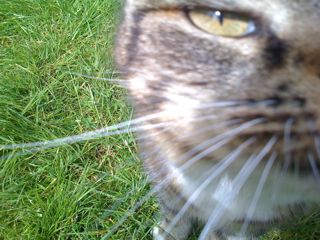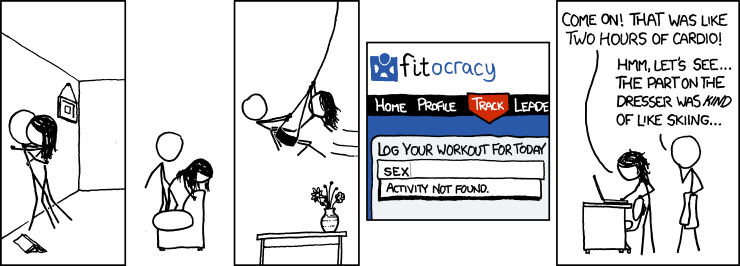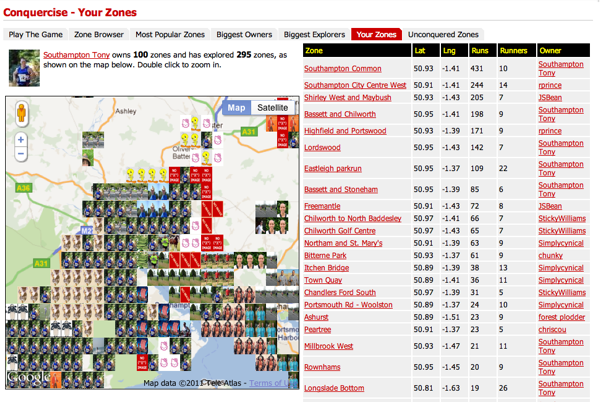
Madalina who has put in so much hard work on this project, and she is particularly fond of cats, so it seems appropriate
Anyway enough of the cuddly furry lolz stuff and onto the reading list...
Work that we are doing at Southampton on repositories is being led by Les Carr (aka repository man). ePrints is being delivered as a platform which is rich in technology affordances. ePrints is being used as the engine behind a number of educational repositories, hosted at Southampton, and at other universities, for example EdShare, HumBox and Language Box, teachers on the Web Science programme at Southampton already use EdShare to store a large volume of materials, WSCR is a plan to collect Web Science resources across the community. In particular we intend that the artefacts within the collection will serve as a tool to 'emerge' the Web Science Curriculum. A formal definition of the Web Science Subject Categorization (WSSC) has been produced, but the subject area is constantly evolving and it is neither effective nor appropriate to suggest that the curriculum be defined alone by the more traditional methods of extended committee work.
Directly related to the Southampton perspective and experience
- Davis, H., L. Carr, J. Hey, Y. Howard, D. Millard, D. Morris and S. White (2010). "Bootstrapping a Culture of Sharing to Facilitate Open Educational Resources." IEEE Transactions on Learning Technologies 3(2): 96-109
http://eprints.ecs.soton.ac.uk/17386/ - Millard, D., Y. Howard, P. McSweeney, K. Borthwick, M. Arrebola and J. Watson (2009). The Language Box: Re-Imagining Teaching and Learning Repositories. International Conference on Advanced Learning Technologies. Riga, Latvia.
http://eprints.ecs.soton.ac.uk/17183/ - Millard, D. E., Y. Howard, P. McSweeney, M. Arrebola, K. Borthwick and S. Varella (2009). Phantom Tasks and Invisible Rubric: The Challenges of Remixing Learning Objects in the Wild. Proceedings of the 4th European Conference on Technology Enhanced Learning: Learning in the Synergy of Multiple Disciplines. Nice, France, Springer-Verlag: 127-139.
http://eprints.ecs.soton.ac.uk/17561/ - White, S., M. Croitoru, S. Bazan, S. Cerri, H. C. Davis, C. Jonquet, G. Prini, F. Scharffe, S. Staab, T. Tiropanis and M. Vafopoulos (2011). Negotiating the Web Science Curriculum Development through Shared Educational Artefacts. ACM WebSci '11. Koblenz, Germany. http://eprints.ecs.soton.ac.uk/22141/
- Cassel, L. N., G. Davies, R. LeBlanc, L. Snyder and H. Topi (2008). Using a Computing Ontology as a Foundation for Curriculum Development. SW-EL'08 Sixth International Workshop on Ontologies and Semantic Web for E-Learning in conjunction with ITS 2008, Montreal, Canada.
http://compsci.wssu.edu/iis/swel/SWEL08/Papers/Cassel.pdf
- Dicheva, D. and C. Dichev (2010). Finding Resources and Collaborators within Digital Collections. International Conference on Web Intelligence and Intelligent Agent Technology. Toronto, Canada.
http://www.computer.org/portal/web/csdl/doi/10.1109/WI-IAT.2010.146 - Mitchell, S. M. and W. G. Lutters (2006). Assessing the Value of Computer Science Course Material Repositories. The19th Conference on Software Engineering Education and Training Workshops.
http://dl.acm.org/citation.cfm?id=1181857
- Fincher, S., M. Kölling, I. Utting, N. Brown and P. Stevens (2010). Repositories of Teaching Material and Communities of Use: Nifty Assignments and the Greenroom. Proceedings of the Sixth international workshop on Computing education research. Aarhus, Denmark, ACM: 107-114.
http://www.cs.kent.ac.uk/people/staff/mik/papers/2010-08-nifty-greenroom.pdf
Southampton folk are advised that they may have to go via the library link to log into the non eprints journal holdings
Links
- ePrints http://www.eprints.org/
- Les Carr aka repository man http://repositoryman.blogspot.com/
- EdShare http://www.edshare.soton.ac.uk/
- Language Box http://languagebox.ac.uk/
- HumBox http://humbox.ac.uk/
- Web Science Subject Categorization http://webscience.org/2010/wssc.html







